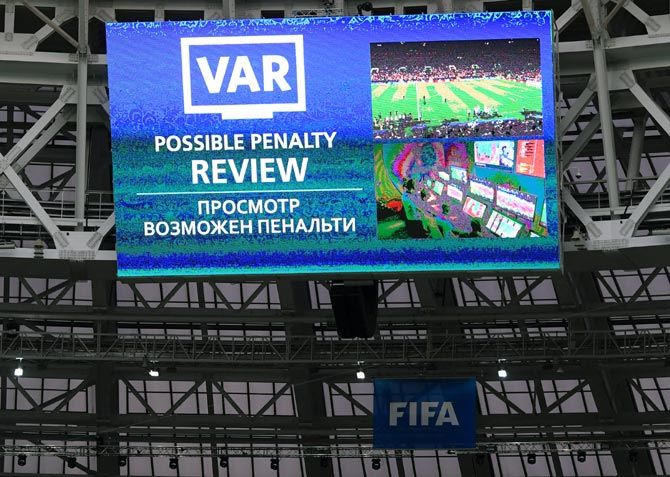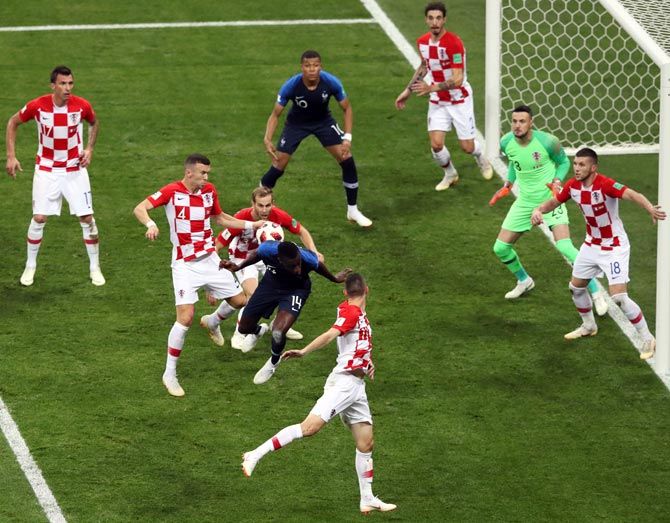VAR is generally considered to have been a success at the World Cup, as FIFA president Gianni Infantino proudly declared on Friday, but other federations are not so sure.

A debatable penalty awarded with the use of FIFA's new video replay system proved a turning point in the World Cup final on Sunday and raised more questions over whether the new technology is being used in the way it was originally intended.
France and Croatia were level at 1-1 in an evenly contested match when Argentine referee Nestor Pitana was alerted to a possible handball and, after checking the off-field screen, he decided Croatia's Ivan Perisic had handled.
Antoine Griezmann converted the penalty and France went on to win 4-2. Even after the use of the Video Assistant Referee (VAR) system, it remained a highly contentious call.
The incident arose when Griezmann drove in a corner and, as Perisic jumped with Blaise Matuidi, the ball made contact with the hand of the Croatia winger. Whether it was deliberate, or whether Perisic's hand was in an unnatural position was not clear, even after repeated viewing of the incident.
The VAR protocol says that a review should only take place to correct a "clear and obvious error" but that did not seem to the case here, as the question of whether Perisic had handled the ball was a marginal call and open to interpretation.
In fact, VAR has already been used in several other situations during the tournament which did not seem to meet the "clear and obvious" criteria, suggesting world governing body FIFA is giving it a bigger role than previously announced.
Sunday's decision also took longer than FIFA may have liked.
Initially, there was confusion as the referee received information through his earpiece from the VAR officials but the crowd was not informed of anything.

It only became clear that a penalty was being considered when Pitana drew a television symbol in the area and "VAR review" was flashed on the scoreboard.
There was further confusion as Pitana looked at the pitchside monitor, went onto the pitch, then turned back to have another look.
The use of VAR was approved by FIFA in March after a two-year trial.
It is generally considered to have been a success at the World Cup, as FIFA president Gianni Infantino proudly declared on Friday, but other federations are not so sure.
European soccer governing body UEFA will not use it in the their Champions League club competition next season and it will not feature, either, in England's Premier League.
Croatia coach Zlatko Dalic made his feelings clear, saying: "I don't talk about refereeing decisions but I will say this one thing: In a World Cup final, you do not give such a penalty."











